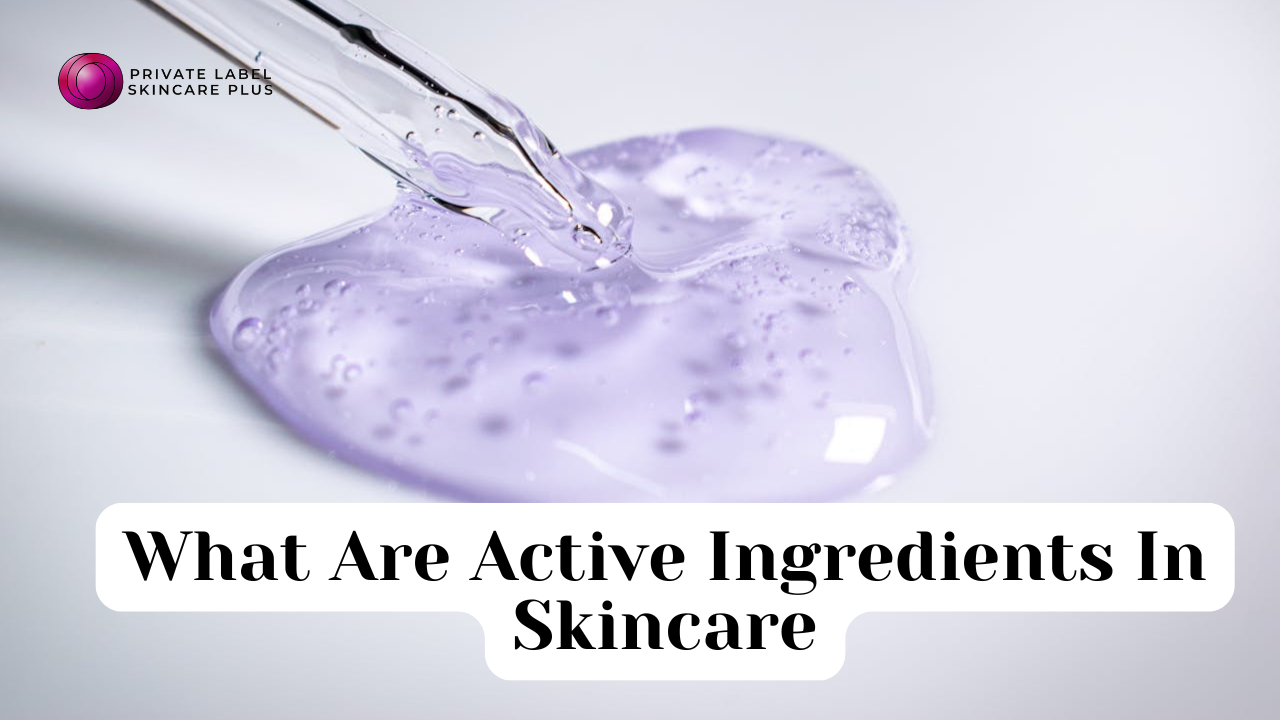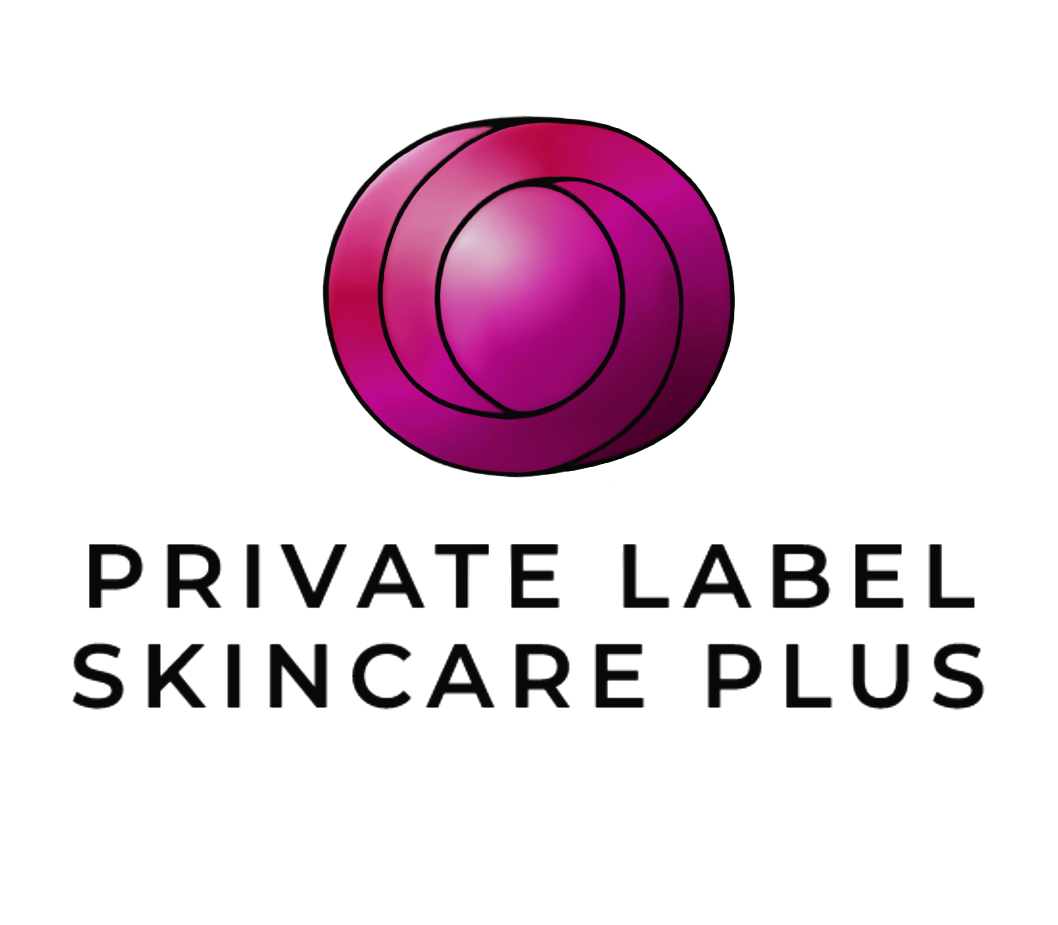In today’s skincare industry, consumers are increasingly seeking out products that not only promise results but deliver them. The science behind these products often boils down to one key factor: active ingredients. Active ingredients are the powerhouse compounds in a product that target specific skin concerns, whether it’s hydration, anti-aging, acne treatment, or skin brightening.
For private labeling brands looking to make a mark in this competitive market, understanding and utilizing the right active ingredients is crucial. Incorporating these into a custom skincare formulation ensures that the products offer targeted solutions, helping brands establish credibility and build loyal customer bases. This article will guide you through the most important active ingredients in skincare and how selecting the right ones can elevate your skincare branding.
Why Active Ingredients Matter for Skincare Brands
Active ingredients are at the heart of skincare efficacy. They address skin concerns such as dryness, wrinkles, acne, and hyperpigmentation. For private labeling skincare brands, the right combination of active ingredients is what makes your product not only unique but also effective. As consumers become more educated, they expect transparency and proven results, making the choice of active ingredients a pivotal decision.
In a market crowded with options, having potent active ingredients in your product can set it apart from competitors. Whether your brand is targeting sensitive skin, anti-aging, or acne-prone customers, the use of clinically-proven actives ensures product effectiveness. This effectiveness directly influences customer satisfaction and loyalty, which in turn strengthens skincare branding.
Key Categories of Active Ingredients in Skincare
Active ingredients in skincare are divided into several categories, each designed to address specific skin concerns. Understanding these categories is essential for creating effective skincare products that meet the needs of your target audience. Below is an in-depth explanation of the key categories of active ingredients commonly used in skincare formulations, along with their benefits and how they can be incorporated into a custom skincare formulation.
1. Hydrators and Moisturizers
Hydrators and moisturizers are fundamental components in skincare as they help maintain the skin’s moisture balance, preventing dryness and dehydration. One of the most popular hydrating ingredients is hyaluronic acid, a humectant capable of holding up to 1,000 times its weight in water. This ingredient provides deep hydration, making it perfect for products designed to combat dry or aging skin. Glycerin, another highly effective humectant, works by drawing moisture to the skin’s surface, leaving it plump and hydrated. It is versatile and suitable for various skin types, including oily, sensitive, and combination skin.
In addition to humectants, ceramides play a crucial role in maintaining the skin’s natural barrier. Ceramides are lipid molecules that help lock in moisture and protect the skin from environmental aggressors. They are especially beneficial for people with sensitive or dry skin, as they aid in restoring the skin’s natural barrier function. By incorporating these powerful hydrators into formulations, private labeling skincare brands can create products that cater to consumers seeking moisture-rich solutions for soft, supple skin.
2. Anti-Aging & Skin Renewal
The demand for anti-aging skincare continues to grow, with consumers seeking ingredients that offer real results in reducing fine lines, wrinkles, and other signs of aging. Retinoids, such as retinol and retinaldehyde, are among the most effective active ingredients for anti-aging. Retinoids work by accelerating cell turnover and stimulating collagen production, which helps to smooth fine lines, even out skin tone, and improve skin texture. Although potent, retinoids can cause irritation, so private labeling brands must carefully balance their concentrations to ensure effectiveness without compromising comfort.
Vitamin C is another powerhouse ingredient in this category, known for its antioxidant properties and ability to brighten the skin. As a key player in collagen production, it helps reduce the appearance of dark spots and promotes a radiant, youthful complexion. Alongside these, peptides are increasingly popular in anti-aging formulations due to their role in promoting collagen synthesis. Peptides are gentler than retinoids, making them a great option for individuals with sensitive skin who still want the benefits of firmer, smoother skin.

3. Brightening Agents
Brightening ingredients are essential for addressing issues like hyperpigmentation, dark spots, and dull skin. Niacinamide, also known as Vitamin B3, is a multi-functional ingredient that not only brightens the skin but also improves the skin’s barrier function and reduces inflammation. This makes niacinamide a versatile choice for a wide range of skincare products, from brightening serums to anti-acne formulations. It is gentle enough for sensitive skin and can be used in products targeting skin tone unevenness and texture improvement.
For a more targeted approach to hyperpigmentation, alpha arbutin offers a gentler alternative to traditional skin-lightening agents like hydroquinone. It works by inhibiting the enzyme responsible for melanin production, helping to reduce dark spots and create a more even complexion. Another effective brightening ingredient is kojic acid, derived from fungi, which helps lighten dark spots and discoloration. These brightening agents are key in formulations designed for consumers seeking a glowing, even-toned complexion.
4. Acne-Fighting Ingredients
Acne is one of the most common skin concerns, and consumers are constantly looking for effective ingredients to keep breakouts at bay. Salicylic acid is a go-to acne treatment ingredient, especially for oily and acne-prone skin types. As a beta-hydroxy acid (BHA), salicylic acid penetrates deep into the pores, exfoliating from within and dissolving oil and debris that can lead to clogged pores and breakouts. Its ability to reduce acne and prevent future flare-ups makes it an essential ingredient in cleansers, toners, and spot treatments.
Another key acne-fighting ingredient is benzoyl peroxide, known for its antibacterial properties that kill acne-causing bacteria. It is especially effective in reducing inflammatory acne and controlling excess oil. However, benzoyl peroxide can sometimes cause dryness, so it’s important to balance its concentration with moisturizing agents. For a more natural approach, tea tree oil offers antimicrobial and anti-inflammatory properties. It is a popular choice in natural or clean beauty lines, providing a gentler option for individuals looking for effective acne solutions without harsh chemicals.
5. Exfoliants
Exfoliating ingredients are essential for sloughing off dead skin cells and promoting the turnover of new, healthy skin. Alpha hydroxy acids (AHAs), such as glycolic and lactic acids, are water-soluble acids that exfoliate the surface of the skin, improving texture and reducing the appearance of fine lines. These acids are ideal for use in anti-aging products and chemical peels, as they promote a smoother, more youthful complexion.
For consumers with sensitive skin, polyhydroxy acids (PHAs) offer a gentler exfoliation option. PHAs are less likely to cause irritation compared to AHAs, yet they still effectively remove dead skin cells and enhance skin hydration. These exfoliating agents are perfect for products aimed at individuals seeking gentle yet effective ways to improve skin texture without causing redness or sensitivity.
6. Soothing & Anti-Inflammatory Ingredients
In today’s market, there is increasing demand for skincare products that soothe and calm irritated or inflamed skin. Aloe vera, known for its cooling and hydrating properties, is a staple ingredient in products designed to calm the skin, especially after sun exposure or irritation. It is a favorite in formulations for sensitive skin, offering relief and hydration without clogging pores.
Another popular soothing ingredient is Centella Asiatica (Cica), which has healing and anti-inflammatory properties. Often used in K-beauty formulations, Centella helps reduce redness and promotes skin repair, making it ideal for products targeting irritated, sensitive, or acne-prone skin. Additionally, colloidal oatmeal is commonly used in products for eczema and other skin conditions. Its ability to lock in moisture and soothe irritation makes it a crucial ingredient for barrier-repair creams and treatments designed for highly reactive skin.

How to Choose Active Ingredients for Your Private Label Skincare Line
Selecting the right active ingredients begins with understanding your audience. Are they looking for anti-aging products? Acne treatments? Hydration? A clear understanding of your market will guide your choice of ingredients.
- Target Audience: Consider the age group, skin type, and common concerns of your audience when selecting active ingredients. Mature skin may benefit from retinol and peptides, while younger audiences may seek out salicylic acid for acne control.
- Market Trends: Stay current with trends like “clean beauty” and “natural skincare.” For example, bakuchiol is gaining popularity as a natural alternative to retinol.
- Regulatory Compliance: Be aware of regulations that govern active ingredients in different markets. For example, some ingredients like hydroquinone are restricted in certain regions.
- Sustainability and Ethics: More consumers are seeking cruelty-free, vegan, and sustainable products. Choosing eco-friendly ingredients can enhance your skincare branding and appeal to conscientious customers.
Partnering with a Private Label Manufacturer
Partnering with a private labeling manufacturer allows brands to focus on marketing and branding while leaving the technical aspects of formulation to experts. Here’s why working with an experienced private label manufacturer is key:
- Formulation Expertise: An experienced manufacturer can help you develop a custom skincare formulation that aligns with your brand’s vision and consumer needs.
- Flexibility & Customization: A private label manufacturer offers the flexibility to create unique formulations by combining various active ingredients tailored to specific skin concerns.
- Quality Control: Reputable manufacturers adhere to strict quality control standards, ensuring that the active ingredients maintain their potency and efficacy throughout the production process.
- Skincare Product Packaging: The right packaging is crucial for preserving the efficacy of active ingredients. For example, air-tight packaging is necessary to prevent the degradation of sensitive ingredients like retinol and vitamin C.
- Silkscreen Printing: Manufacturers offer silkscreen printing options for your packaging, allowing you to create professional, aesthetically pleasing designs that reflect your brand identity.
How Private Label Skincare Plus Can Help Your Brand
At Private Label Skincare Plus, we provide more than just manufacturing services. We partner with brands to help them choose the right active ingredients, develop custom skincare formulations, and deliver high-quality products that stand out in the market. Our team of experts works with you every step of the way, from formulation to skincare product packaging.
With silkscreen printing and packaging solutions that ensure your product’s active ingredients remain potent, we help your brand make a lasting impression. We are committed to innovation, offering cutting-edge formulations that are compliant with industry regulations and tailored to your brand’s unique identity.
Conclusion
Active ingredients are the key to creating effective, results-driven skincare products. For private labeling brands, choosing the right ingredients not only delivers on promises but also strengthens skincare branding and builds customer loyalty. Whether you’re looking to create a new skincare line or enhance an existing one, Private Label Skincare Plus can help you every step of the way with expert formulation, quality manufacturing, and standout skincare product packaging.
Ready to take your skincare brand to the next level? Contact us today to start building your custom skincare line.


